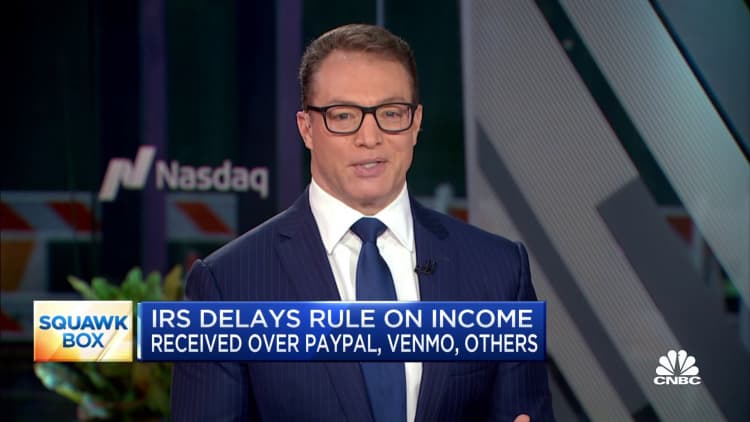The IRS is waiving roughly $1 billion in late-payment penalties for millions of taxpayers with balances under $100,000 from returns filed in 2020 and 2021.
Some 4.7 million individual taxpayers, businesses, trusts, estates and nonprofit organizations are eligible for the relief, which amounts to about $206 per return, the agency said Tuesday.
"IRS is providing a financial breather to taxpayers," said certified financial planner Sean Lovison, founder of Philadelphia-area Purpose Built Financial Services. He is also a certified public accountant.
More from Personal Finance:
3 year-end investment tax tips from top-ranked financial advisors
Unaffordable rents are linked to premature death, Princeton study finds
Is the U.S. in a 'silent depression?' Economists weigh in on the TikTok theory
The penalty removal is automatic and filers who already paid late-payment penalties for the 2020 and 2021 tax years will receive a refund or credit, the IRS said. However, late-payment penalties for unpaid balances from 2020 and 2021 will resume April 1, 2024.
"December to April is clearly a time taxpayers want to put this away" and make a plan to pay off balances to avoid enforcement, said Darren Guillot, national director at Alliantgroup, who previously served as IRS deputy commissioner of the agency's small business division.
December to April is clearly a time taxpayers want to put this away.Darren GuillotNational director at Alliantgroup
The waiver applies to the failure-to-pay penalty, which is 0.5% of unpaid taxes per month or partial month, capped at 25%.
However, eligible taxpayers may still be subject to the failure-to-file penalty and interest, the IRS said. The late filing penalty is 5% of unpaid taxes per month or partial month, with a maximum fee of 25%. Interest rates are currently 8% per year, compounded daily.
'Normal collection mailings' will resume in 2024
The penalty relief comes as the IRS prepares to resume collection notices that were temporarily paused in February 2022 due to "high inventories" created by the Covid-19 pandemic. In some cases, taxpayers with 2020 or 2021 balances may have only received an initial notice before the pause.
"As the IRS has been preparing to return to normal collection mailings, we have been concerned about taxpayers who haven't heard from us in a while suddenly getting a larger tax bill," IRS Commissioner Danny Werfel said in a statement. "The IRS should be looking out for taxpayers, and this penalty relief is a common-sense approach to help people in this situation."
Starting next month, the IRS will send a "special reminder letter" to inform taxpayers about their liability, ways to make a payment and details about the penalty relief.
"You can't bury your head and pretend it will go away," Guillot said, noting the importance of taking action after receiving an IRS notice.
Taxpayers have "flexible" payment options for unpaid balances and most filers can set up payment plans by scanning the QR code from their IRS notice, he said.

Don't miss these stories from CNBC PRO:


